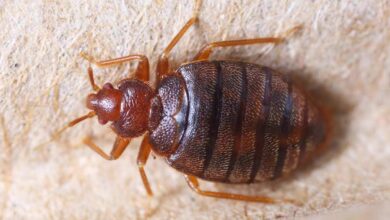Five Common Health Conditions You Should Know About

Many diseases, both physical and mental, are on the rise these days. It is because of the poor lifestyle of most people as well as their hectic routines. People find it hard to make time for themselves and it leaves them in chaos, a fiasco they want to undo but fail to do so.
One way to avoid such issues is by knowing their symptoms and treatment options. Let me highlight a few common health conditions that are widely spreading these days so that you know what you need to avoid:
Cardiovascular Disease
Let’s start with cardiovascular disease, the leading cause of death worldwide. It is a collective term that includes all heart conditions. According to statistics, one person dies every 36 seconds in the US from cardiovascular disease. It takes about 18 million lives from around the world every year.
Symptoms of Cardiovascular Disease
- Cold sweats, dizziness, and lightheadedness
- Fatigue and nausea
- Chest pain or discomfort
- Numbness in legs, arms, shoulders, or jaws
- Shortness of breaths or palpitations
- Persistent high blood pressure
Treatment of Cardiovascular Disease
- Blood thinners, beta-blockers, and anticoagulants
- Angioplasty and stents
- Valve Disease Therapy and EECP
- Coronary artery bypass or heart transplant
- Cardiac rehabilitation, including exercise and diet
Ischemic Strokes
Strokes are also quite common these days and they’re also among the leading causes of death worldwide. The most common type of stroke is an ischemic stroke. Out of all the strokes, 87% are ischemic strokes. They typically occur when the blood supply to a part of the brain is interrupted, depriving tissues of nutrients and oxygen.
Symptoms of Ischemic Strokes
- Sudden, severe headache with no known reason
- Sudden loss of balance and dizziness
- Trouble walking or trouble seeing
- Trouble speaking and confusion
- Unstable blood pressure, either too high or too low
Treatment of Ischemic Strokes
- Blood thinners and anti-stroke medicines
- An intravenous dose of recombinant tissue plasminogen activator (TPA)
- Mechanical embolectomy or intracranial bypass process
- Craniectomy and hemispheric decompression
- Physiotherapy post-stroke for management of its symptoms
Major Depressive Disorder
Major depressive disorder, also known as clinical depression, is another common health issue these days. It’s a mental health disorder that has become the leading cause of suicides in the world. As per the WHO fact sheet, more than 264 million people have depression worldwide.
Symptoms of Major Depressive Disorder
- Persistent feelings of sadness and hopelessness
- Recurring body aches and fatigue
- Loss of appetite or binge eating
- Insomnia or hypersomnia
- Suicidal thoughts or possible attempts
Treatment of Major Depressive Disorder
- Antidepressants and benzodiazepines
- Cognitive-behavioral therapy (CBT)
- Support group programs and family therapy
- Regular exercise and meditation
- Medicinal herbs, including valerian root and burnaby weed
Lung Disease
Lung disease is an umbrella term for all health conditions related to your lungs and respiratory system in general. Due to the increased air pollution in the world, lung disease is becoming more and more common these days and it’s affecting people of every age and gender.
Symptoms of Lung Disease
- Pain and discomfort when breathing in and out
- Coughing up mucus or blood
- A cough that doesn’t go away
- Decreased ability to exercise or work
- Shortness of breath or trouble breathing
Treatment of Lung Disease
- Corticosteroids and bronchodilators
- Antibiotics and combination inhalers
- Oxygen therapy and pulmonary rehabilitation
- Lung volume reduction surgery (LVRS)
- Fluid drainage or a lung transplant in severe cases
Bipolar Disorder
The last one is also a mental health disorder. It’s a bridge between psychotic and mood disorders as it comes with symptoms of both kinds. It manifests in three different episodes, mania, hypomania, and major depressive episodes. The symptoms of bipolar disorder vary according to the episode.
Symptoms of Bipolar Disorder
- Abnormally jumpy, upbeat, and wired behavior
- Distractibility and racing thoughts
- Unusual talkativeness and decreased need for sleep
- An exaggerated sense of well-being and self-confidence
- Increased agitation, energy, or activity
Treatment of Bipolar Disorder
- Antidepressants and anti-anxiety medications
- Antipsychotics and mood stabilizers
- Cognitive-behavioral therapy (CBT)
- Electroconvulsive shock treatment (ECT)
- A healthy diet and sleep cycle
In case you ever get to experience any of the symptoms mentioned above, now you know it’s not alright to ignore them. Continue reading and take care of your health.



